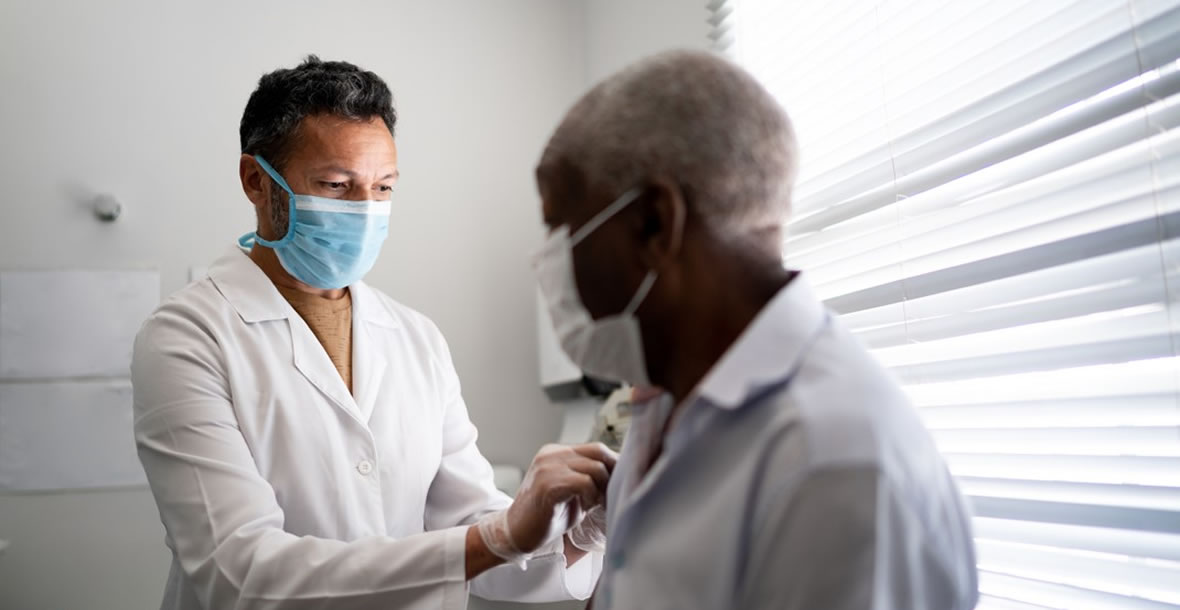Differences in COVID-19 Vaccination and Experiences among Patients with Hypertension in Colombia and Jamaica during the COVID-19 Pandemic

During the COVID-19 pandemic, hypertensive patients had increased infection and healthcare disruption in many low- and middle-income countries (LMICs) with limited vaccine access. The objective of this report is to describe COVID-19 experiences and vaccination uptake among hypertensive patients in Colombia and Jamaica. A cross-sectional study of patients with hypertension was conducted in primary care clinics in both countries between 2021 and 2022. Trained interviewers used a telephone-administered questionnaire to assess COVID-19 experiences (infection, vaccination, and healthcare access). A total of 576 patients (68.5% female, mean age: 67.5 years) participated. Health service disruption affecting access to care was low (< 10%).
Compared to Jamaica, more participants from Colombia reported testing positive for COVID-19, having family members or friends testing positive, losing family members or friends due to COVID-19, and being vaccinated.
In logistic regression models, adjusted for age, sex, education, and rural/urban clinic status, fear of COVID-19 (OR 2.7, 95% CI: 1.2–6.1) and residence in Colombia (OR 5.9, 95% CI: 2.4–14.6) were associated with higher vaccination uptake. Disparities in access to COVID-19 testing and diagnosis may have influenced these country differences including fear of COVID-19 and vaccine uptake. Other factors need to be better understood to prepare for future pandemic responses.
Important highlights from this publication include
“Higher levels of COVID-19 infection, fear of COVID-19, and vaccine uptake were observed in Colombian hypertensive patients compared to Jamaican counterparts.
The rapid distribution of vaccines varied, with Colombia having higher vaccination rates (90.7%) than Jamaica (46.7%).
Vaccine hesitancy in Jamaica was partly due to accessibility issues, despite 44.4% willing to be vaccinated.
Fear of COVID-19 and prior infection experiences significantly influenced vaccine uptake, with fear being a stronger predictor.
Rural areas experienced more healthcare service disruptions than urban areas, particularly in accessing doctors and prescriptions.
These findings will be helpful in the management of other infectious disease outbreaks, particularly in helping to protect persons living with non-communicable disease who may be more susceptible to these illnesses.
Funding for the project was sponsored by National Heart, Lung, and Blood Institute (NHLBI), National Institutes of Health (NIH)
The full article is available at https://www.mdpi.com/1660-4601/21/10/1356
